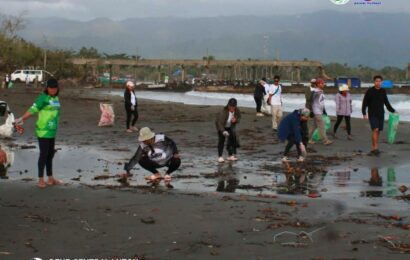CLARK FREEPORT ZONE —Government aviation firm Clark International Airport Corp. passed the first surveillance audit conducted on November 22 by certifying body TÜV Rheinland to retain its ISO 9001:2015 certification.

The TÜV Rheinland team verified that CIAC’s management system conforms to the audit criteria and is compliant with applicable legal, regulatory and contractual requirements.
CIAC President and CEO Jojit Alcazar said the agency’s ISO 9001:2015 Certification is a testament of the organization’s continuous efforts to ensure its operations and activities are at par with global quality and business standards.
“The positive result has determined the effectiveness of CIAC’s Quality Management System, an essential tool needed to achieve our corporate objectives, including the realization of the seven flagship projects of the Clark Aviation Capital,” Alcazar said.
The scope of the audit covered the estate management and processing of lease of land, building and structures under the agency’s jurisdiction where the management system was found to have no major or minor non-conformities, with four positive findings, and six opportunities for improvement or OFIs.
As the premier aviation and land development arm of the Bases Conversion and Development Authority (BCDA), CIAC manages the 2,367-hectare Clark Aviation Capital primed to be the country’s aviation-centric business center. It is also tasked by the Department of Transportation (DOTr) to exercise oversight functions over the operations of the Clark International Airport.
ISO 9001:2015 is a globally acknowledged standard for Quality Management Systems that outlines guidelines to ensure organizations consistently deliver products and services that meet or surpass customer expectations while ensuring they comply with all applicable regulatory and legal requirements.
In November last year, the CIAC successfully retained its ISO certification also following the recertification audit.
However, in accordance with ISO requirements, CIAC is obligated to undergo and pass mandatory surveillance audits in both the second and third years of the certification cycle throughout the three-year term. Failure to meet the standards during the surveillance audits may result in the suspension or revocation of the certification.





